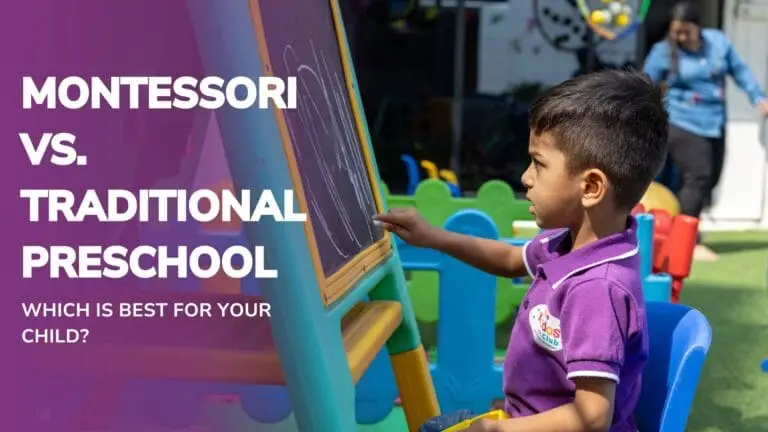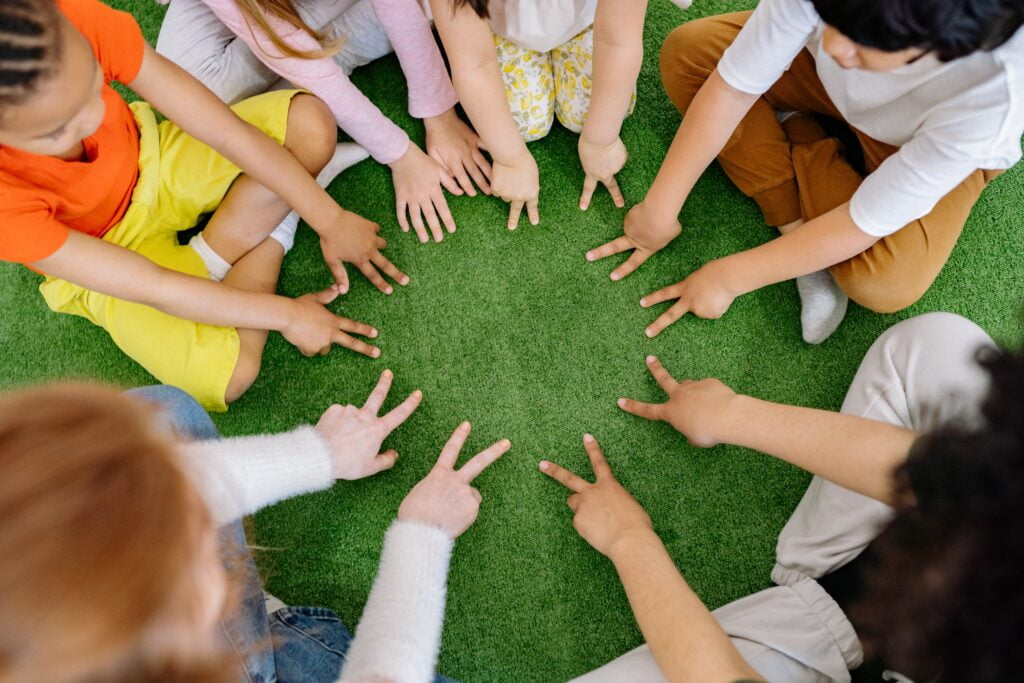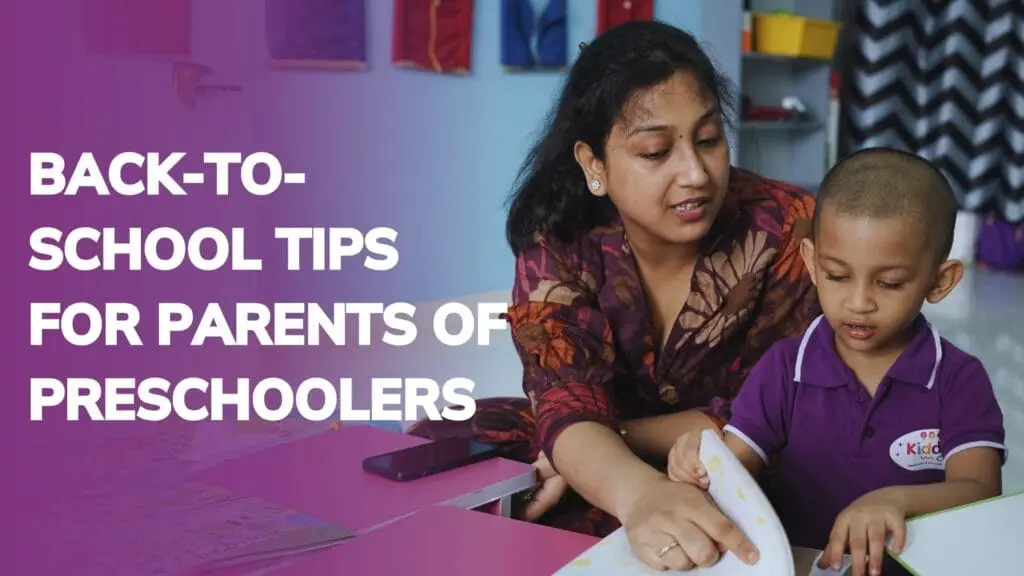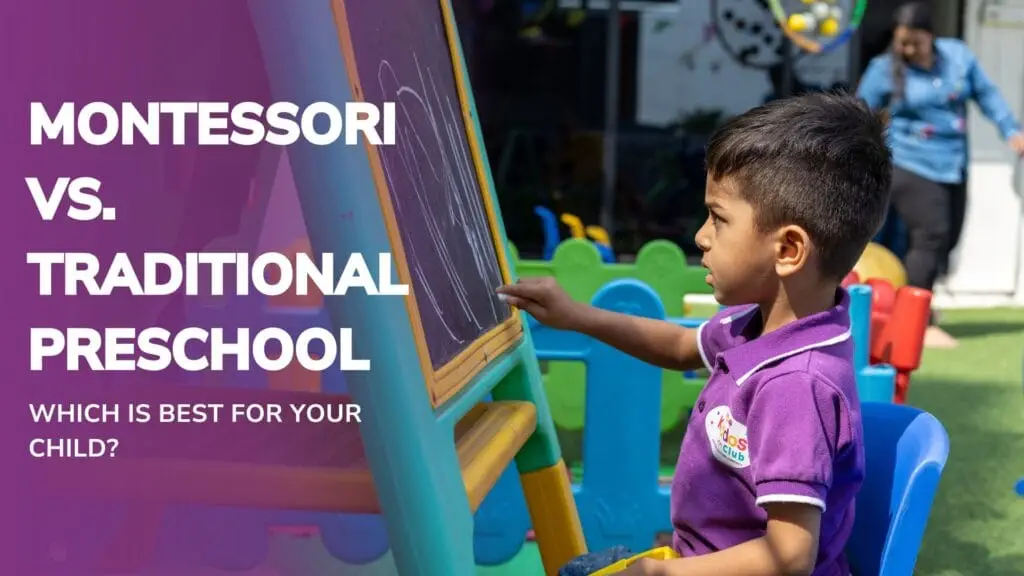Choosing the right preschool is one of the most significant decisions parents make for their child. It sets the foundation for their educational journey and impacts their emotional, social, and cognitive development. Two popular approaches to early childhood education are Montessori and traditional preschool. But how do you decide which is best for your child? Let’s delve into the key differences between Montessori vs. Traditional Preschool to help you make an informed choice.
Understanding Montessori Education
Montessori education, developed in the early 1900s, is child-centric. It emphasizes independence, self-directed learning, and hands-on experiences. Montessori classrooms are designed to encourage exploration and foster a love for learning. Children are given the freedom to choose their activities within a structured environment, allowing them to progress at their own pace.
Some hallmarks of Montessori education include:
- Multi-age classrooms: Younger children learn from older peers, while older children develop leadership skills.
- Specialized materials: Montessori schools use unique, tactile materials that promote sensory and practical learning.
- Focus on intrinsic motivation: Teachers act as guides rather than instructors, helping children develop a natural curiosity and intrinsic motivation to learn.
Understanding Traditional Preschool
In contrast, traditional preschools follow a teacher-directed approach. Activities are often planned around a fixed schedule, and children work on similar tasks simultaneously. Traditional preschools focus on preparing children for kindergarten through structured lessons, group activities, and academic readiness.
Key features of traditional preschool include:
- Same-age classrooms: Children of the same age group are taught together, fostering age-specific social interactions.
- Emphasis on academics: The curriculum focuses on foundational skills like reading, writing, and arithmetic.
- Teacher-led activities: Educators play an active role in guiding lessons and managing classroom dynamics.
Montessori vs. Traditional Education: The Key Differences
When comparing Montessori vs. Traditional Education, several factors stand out. Understanding these distinctions can help you align your choice with your child’s personality, learning style, and developmental needs.
- Learning Environment
- Montessori: Classrooms are carefully prepared environments with child-sized furniture and open spaces. Children choose their activities, fostering independence and responsibility.
- Traditional: The environment is more structured, with predefined seating arrangements and group activities. The focus is on routine and collective participation.
- Teaching Style
- Montessori: Teachers are facilitators who observe and guide rather than instruct. They encourage exploration and self-discovery.
- Traditional: Teachers take a central role, directing lessons and providing clear instructions to the entire group.
- Curriculum
- Montessori: The curriculum is individualized, allowing children to focus on areas of interest and develop skills at their own pace.
- Traditional: The curriculum is standardized, ensuring that all children in the class meet specific benchmarks by the end of the year.
- Social Interaction
- Montessori: Multi-age classrooms promote collaboration and mentorship among children of varying ages.
- Traditional: Same-age classrooms encourage peer bonding within a defined age group.
- Assessment
- Montessori: Progress is assessed through observation and portfolio reviews rather than grades or tests.
- Traditional: Assessments are often based on quizzes, worksheets, and teacher evaluations.
Pros and Cons of Montessori Education
Pros:
- Encourages independence and self-discipline.
- Nurtures a love for learning through hands-on activities.
- Promotes individualized learning tailored to each child’s pace and interests.
- Develops practical life skills early on.
Cons:
- May lack structure for children who thrive in routine.
- Limited exposure to standardized testing, which could pose challenges in transitioning to traditional schools.
- Typically higher tuition fees compared to traditional preschools.
Pros and Cons of Traditional Preschool
Pros:
- Provides a structured environment, beneficial for children who thrive on routine.
- Prepares children for formal schooling with a focus on academics.
- Encourages group activities that build teamwork and social skills.
Cons:
- Less emphasis on individualized learning.
- May not cater to children’s unique interests or paces.
- Focus on academics can sometimes overshadow creative and hands-on learning opportunities.
Factors to Consider When Choosing Between Montessori and Traditional Preschool
- Your Child’s Learning Style If your child is naturally curious and independent, Montessori might be a better fit. For children who prefer structure and guided learning, traditional preschool could be ideal.
- Educational Goals Think about your long-term goals for your child’s education. Montessori focuses on holistic development, while traditional preschools emphasize academic readiness.
- Social Needs Multi-age interactions in Montessori classrooms can benefit children who enjoy collaborative learning. Traditional preschools may be better for those who prefer same-age peer interactions.
- Budget and Accessibility Montessori schools often have higher tuition fees and may not be as widely available as traditional preschools. Consider your budget and proximity to either type of school.
Combining the Best of Both Worlds
Some parents explore hybrid models that blend elements of Montessori and traditional education. These schools offer the structure of traditional preschools while incorporating Montessori’s child-centric and hands-on learning approaches. This option can provide a balanced environment catering to various learning styles.
Why Kiddos Club Preschool & Daycare?
At Kiddos Club Preschool & Daycare, we understand that every child is unique, and so are their learning needs. Our approach combines the best practices from Montessori vs. Traditional Preschool methods to create an enriching environment that nurtures curiosity, creativity, and foundational skills.
Our classrooms feature:
- Interactive learning spaces that encourage exploration and engagement.
- Personalized attention to balance independence with guided instruction.
- Diverse activities to develop cognitive, social, and emotional skills.
Whether you lean towards Montessori or traditional education, Kiddos Club Preschool and Daycare ensures your child receives the best start to their educational journey.
Conclusion
The choice between Montessori vs. Traditional Education ultimately depends on your child’s needs and your educational philosophy. Both approaches offer valuable benefits, and the key is to find a preschool that aligns with your child’s personality and your family’s priorities. By considering factors like learning style, social needs, and long-term goals, you can confidently select the best path for your little one.
Remember, the ultimate goal is to foster a love for learning and create a positive, supportive environment where your child can thrive. With the right choice, your child’s preschool years can become a joyful and enriching foundation for their future success. Schedule a visit to Kiddos Club Preschool and Daycare!




